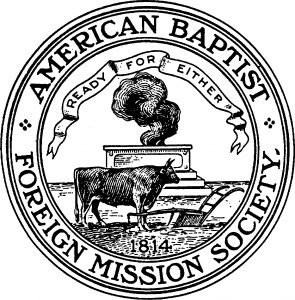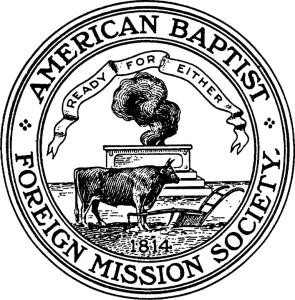Yesterday we looked at a wonderful illustration that illuminates the two different fates of the Apostles James and John (Matthew 20) and a profound truth about vocation.
To review, Fr. Robert McTeigue describes a Roman coin that “depicts an ox facing both an altar and a plow. The inscription on the coin reads: ‘Ready for Either.’ In other words, the ox is ready for the ‘red martyrdom’ of being sacrificed at the altar, or for the ‘white martyrdom’ of a life of unglamorous service, hitched to the plow until death.”
In trying to find an illustration for my post on the subject, I tried to find that ancient Roman coin. But I couldn’t! There were ancient Roman coins that depicted oxen, including oxen being sacrificed. Like this one (from Cointalk):
Try as I might, I couldn’t find an ancient Roman coin showing an ox with those two alternatives. I did, however, have better luck with the purported inscription. “Ready for either” in Latin is Ad utrumque paratus. I learned that this is an actual Latin saying. It is a quotation from Virgil. David Armstrong, Emeritus Professor from the University of Texas, identifies the source:
It’s first used in Virgil, Aeneid 2.61, where the slimy Greek spy Sinon deceives the Trojans into thinking they should haul the Trojan Horse into the town: he was
fidens animi atque in utrumque paratus,
seu versare dolos seu certae occumbere morti.[Translated as] “optimistic in spirit and ready for either (fate ), to put over his lies or die a certain death.”
Ad utrumque paratus is the motto of the University of Lund in Sweden, the Spanish royal family, and a number of military units, who sometimes render the phrase as “ready for anything.”
The Latin inscription appears on an 18th century Swiss medal, showing not an ox but a sword and a wreath, as in ready for either war or peace. But that inscription is not listed on an online catalogue of inscriptions on Roman coins.
I went to the source that Fr. McTeigue referred to, William Barclay (1907-1978) author of the popular Bible commentaries. He it was who used the figure of the ox facing the altar and the plow to unpack the different “cups” that awaited St. James and St. John. From Barclay’s commentary on Matthew 20:20-28:
It is quite wrong to think that for the Christian the cup must always mean the short, sharp, bitter, agonizing struggle of martyrdom; the cup may well be the long routine of the Christian life, with all its daily sacrifice, its daily struggle, and its heart-breaks and its disappointments and its tears. A Roman coin was once found with the picture of an ox on it; the ox was facing two things–an altar and a plough; and the inscription read: “Ready for either.” The ox had to be ready either for the supreme moment of sacrifice on the altar or the long labour of the plough on the farm. There is no one cup for the Christian to drink. His cup may be drunk in one great moment; his cup may be drunk throughout a lifetime of Christian living. To drink the cup simply means to follow Christ wherever he may lead, and to be like him in any situation life may bring.
Notice that Barclay is referring not to a specific artifact but to “a Roman coin” that was “once found.” That supports the possibility that the “ancient Roman coin” is apocryphal. That doesn’t take away from the illustration being a good story. But if not a Roman coin, what is the source?
I kept digging. I found this from a devotion written by the great English preacher Charles Spurgeon (1834-1892): “Let me be as the bullock which stands between the plough and the altar, to work or to be sacrificed; and let my motto be, ‘Ready for either.'” (Philippians Devotionals, Phil. 1:21.) This appeared in his book of devotions Morning and Evening published in 1865.
This is the exact scenario, but Spurgeon gives it no context whatsoever. But he says nothing about a Roman coin.
I kept digging. I found another early preacher, J.R. Miller (1840-1912):
It is always a solemn hour when anyone stands before God and men, to make a public profession of Christ. The act is nothing less than the consecration of a human soul to Christ’s service, for life or for death.On the seal of an old missionary society, an ox stands between an altar and a plough, and written below is the motto, “READY FOR EITHER!” That is, ready for sacrifice or for service.This should be the heart-motto in every public profession; it should be . . .
a solemn devotement to Christ,
an entire surrender to Him for obedience, duty and sacrifice;
a consecration of the whole life to Christ and His service.
Such consecration all have made, who have publicly given themselves to Christ.
The seal of an old missionary society! Now I had something to go on. Eventually, I found this, on the website of a modern missionary organization, International Ministries:
IM has reintroduced the historical seal that was adopted by the organization shortly after its formation in 1814 as the first Baptist foreign mission agency. The seal uses IM’s earlier name, “American Baptist Foreign Mission Society” (ABFMS), and features an ox standing with an altar and a plow under a banner reading “ready for either.” This poignant image symbolizes a global servant’s unconditional response to God’s call: an attitude of readiness for service or sacrifice. Not only does the ABMFS seal reflect IM’s rich heritage, it also represents the commitment to God’s work that IM global servants continue to make every day.

Illustration: Seal of the American Baptist Foreign Mission Society (1814) via International Ministries













